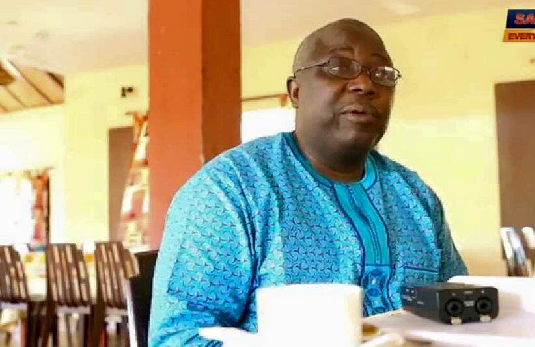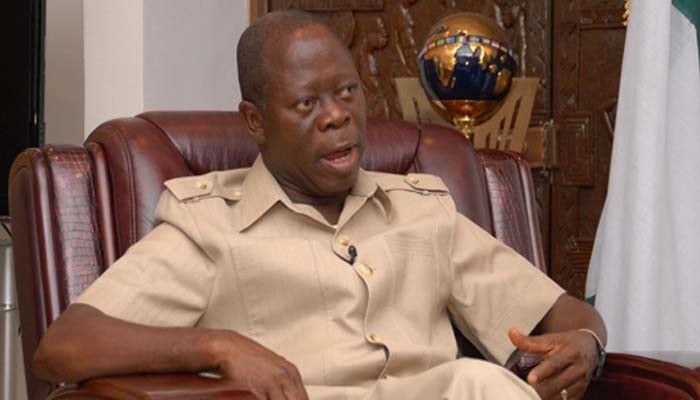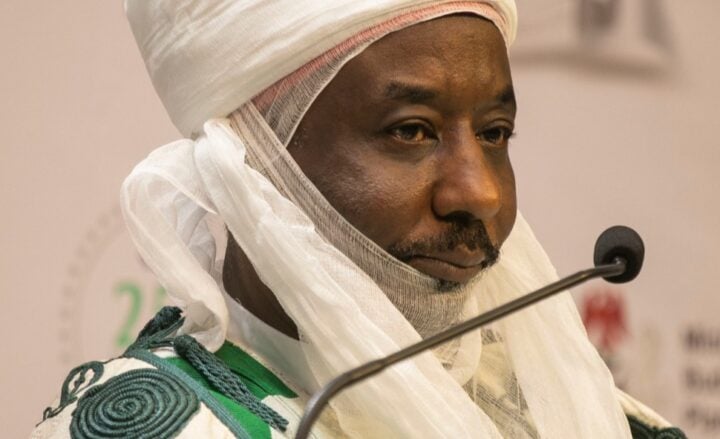Artisans uprooted hundreds of cocoa trees at Afolabi's farm to dig canals for gold mining
Johnson Afolabi, an 83-year-old farmer, is used to the sound of chirping birds and cock crows announcing daybreak at Obalayan village, a small agrarian community in Ife east local government area of Osun state. But on the morning of September 1, Johnson was jolted out of his sleep with a strange sound chorusing from afar. The octogenarian was sure what he heard was different from the tweeting of nightingales or any of the familiar songbirds in the village. It was the clamour of bulldozers wreaking havoc on the family’s massive cocoa farm. The bulldozers had flattened hundreds of cocoa trees with their seeds and rendered the land desolate.
Johnson collapsed immediately when he saw the extent of the damage. It took the intervention of family members, who followed the patriarch to the site, to resuscitate him before he bounced back to life. But the deed was done. A significant part of the over 250-year-old farm that has been passed from one generation to another, had given way to the pursuit of the latest enterprise in the state: gold mining.
Recounting the incident, Taye Afolabi, Johnson’s 43-year-old nephew, said about four hectares of land belonging to the family was destroyed by the encroachers who have been scavenging for gold in the community and neighbouring ones for over three years. They never had an inkling of the disaster as no negotiation was reached between the family and the miners, who worked under the protection of gun-wielding mobile police officers and local thugs. No farmer dares attempt to stop the workers or else they put their lives at risk.
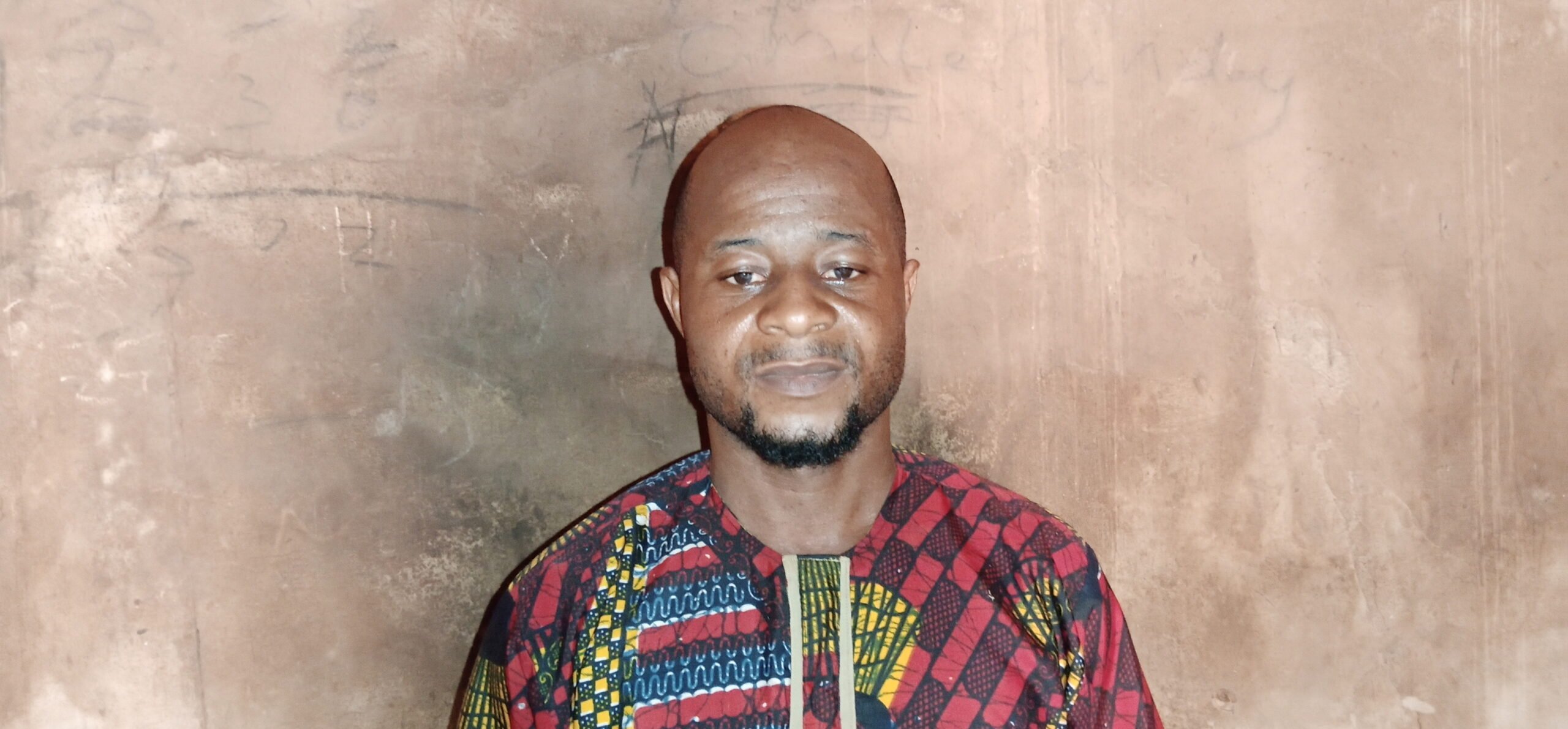
“On June 5, I went to spray the cocoa and I saw some people marking the trees. They marked about 700 trees. I challenged them and we didn’t see them again until September 1 when they invaded the farm and destroyed the trees to pave way for their work,” Afolabi said.
Advertisement
“More than 700 trees were knocked down in just a few hours. My uncle was devastated. He started crying that his life had been shattered. You cannot fight them because they had thugs protecting them with assorted weapons. The farm has been there for over 250 years. We were not compensated for the damage. We know they are powerful people; that is why we are currently fighting the case at the police command office in Osogbo. We have estimated our loss to about N200 million.
“They are still there as we speak. They have dug a big carnal across the farm and they work there 24-hours with guards.”
When Afolabi took this reporter to the farm, there were two excavators digging huge canals across a stream. Two Asians, 10 local workers and thugs were at the site. The expatriates were coordinating the welding of a large fuel tank, while the thugs menacingly kept an eye on anyone who came around the area.
Advertisement
“If you fall inside the canals, you may never come out alive,” Afolabi swiftly cautioned against going near the cliff.
AT OBALAYAN, THE VIOLENT TAKE IT BY FORCE
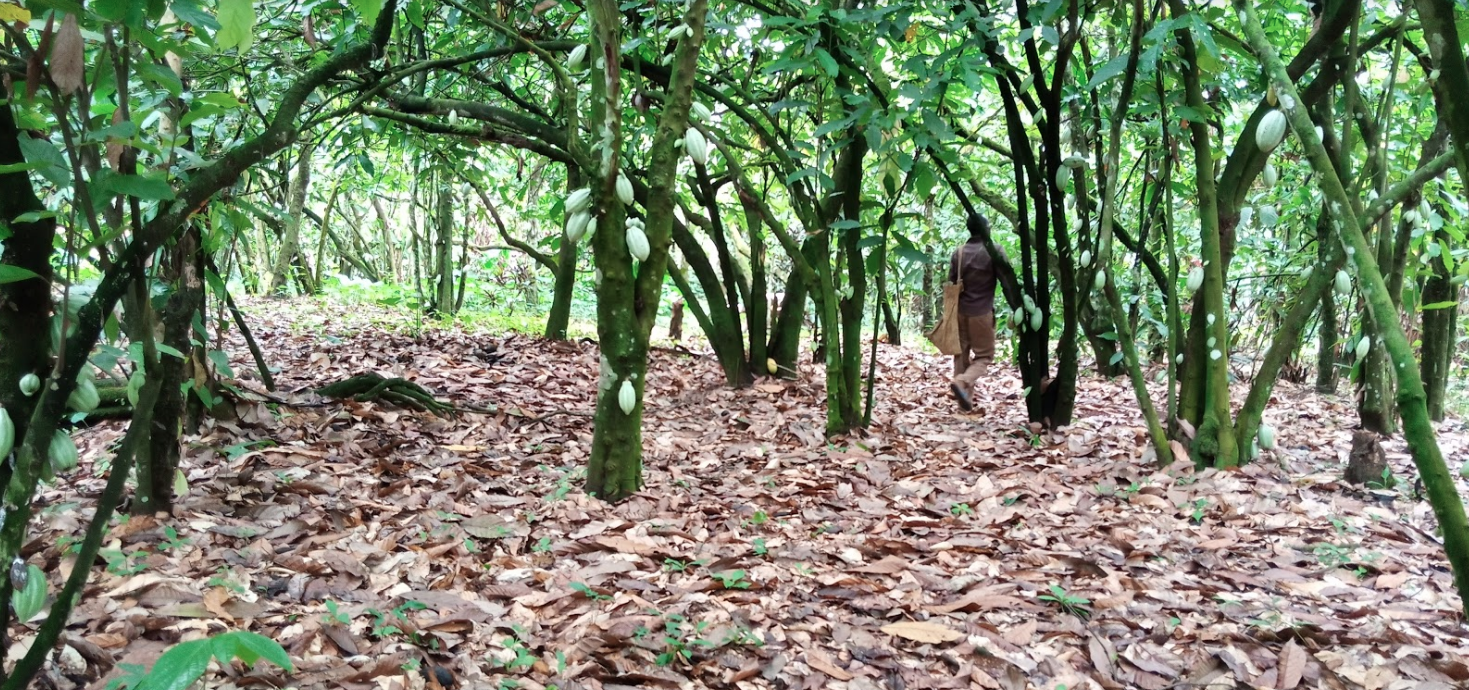
According to 52-year-old Segun Folarin, whose cocoa farms were invaded in 2019, the situation in Obalayan could be likened to the days of John the Baptist when the kingdom of heaven suffered violence, and only the violent took it by force. Some portions of his farm have become pits and the cocoa trees around the mines withering. After he fought and chased away the miners from his farm, he concluded that he would protect his only source of livelihood from the invaders with whatever it takes.
When Folarin graduated from the state college of technology about two decades ago, he could not secure a white-collar job from any public institution or private firm. With massive land back in Obalayan, his home town, he resorted to farming with which he now provides for his five wives, 10 children and younger siblings. In addition, Segun has 10 workers whom he pays N140,000 each annually, aside feeding and housing them.
Advertisement
“It costs a lot to maintain the farms. We are talking about cash crops here and the farm needs to be constantly weeded and seeds sprayed. We have to source the chemicals we use from Ghana. We still have to pay workers and spend efforts on harvesting and packaging them. And these people just want to end one’s efforts overnight because they want to dig for gold,” he said.
“When they negotiate their poor offers with you and you don’t take it, they enter your farm by force with mobile policemen and begin to uproot cocoa trees that have been there for hundreds of years. They want to pay N200 for each tree. Just one tree can fetch me about N1,500 in a year. One’s third-generation can harvest from the same farm. This cocoa farm is over 100 years old.
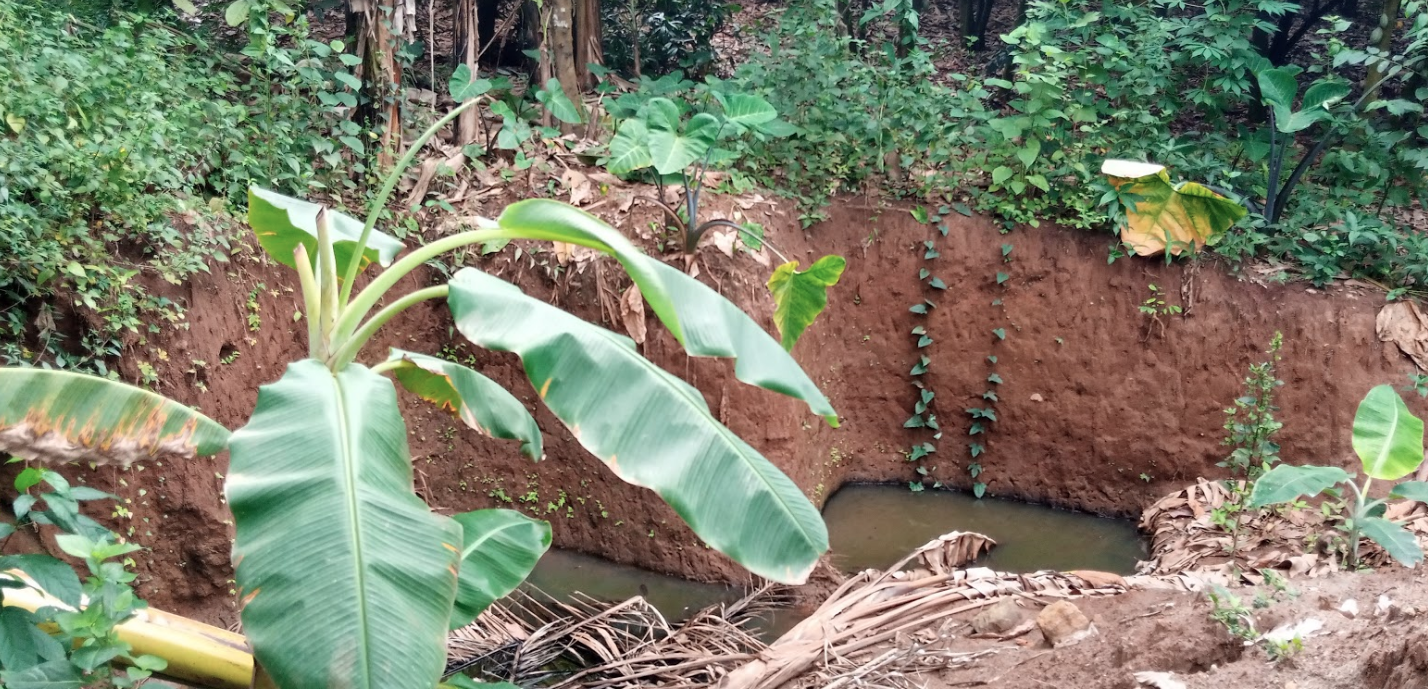
“Whichever farm they enter can never be useful again. Even the crops around the mines become useless. They often do their exploration around the streams that pass through farms from one village to another. So, when they are done, the water becomes contaminated. Farmers whose lands have been destroyed by the miners cannot go there again and they are now hungry.”
He accused prominent traditional rulers of inviting the miners to the area to inflict misery on the poor farmers just for their own pecuniary gain. Having taken away the means of livelihood of the farmers, they are left at the mercy of their kinsmen. Going back to their farms after mining amounts to returning to death traps.
Advertisement
“Things are already hard for farmers in the country, but these gold miners have come to make it worse for us. Most farmers in this community could not sell their farm produce during the pandemic. Yet, this is the only work that gives them income,” he said.
ENVIRONMENTAL POLLUTION: VILLAGERS AT RISK OF LEAD POISONING
Advertisement
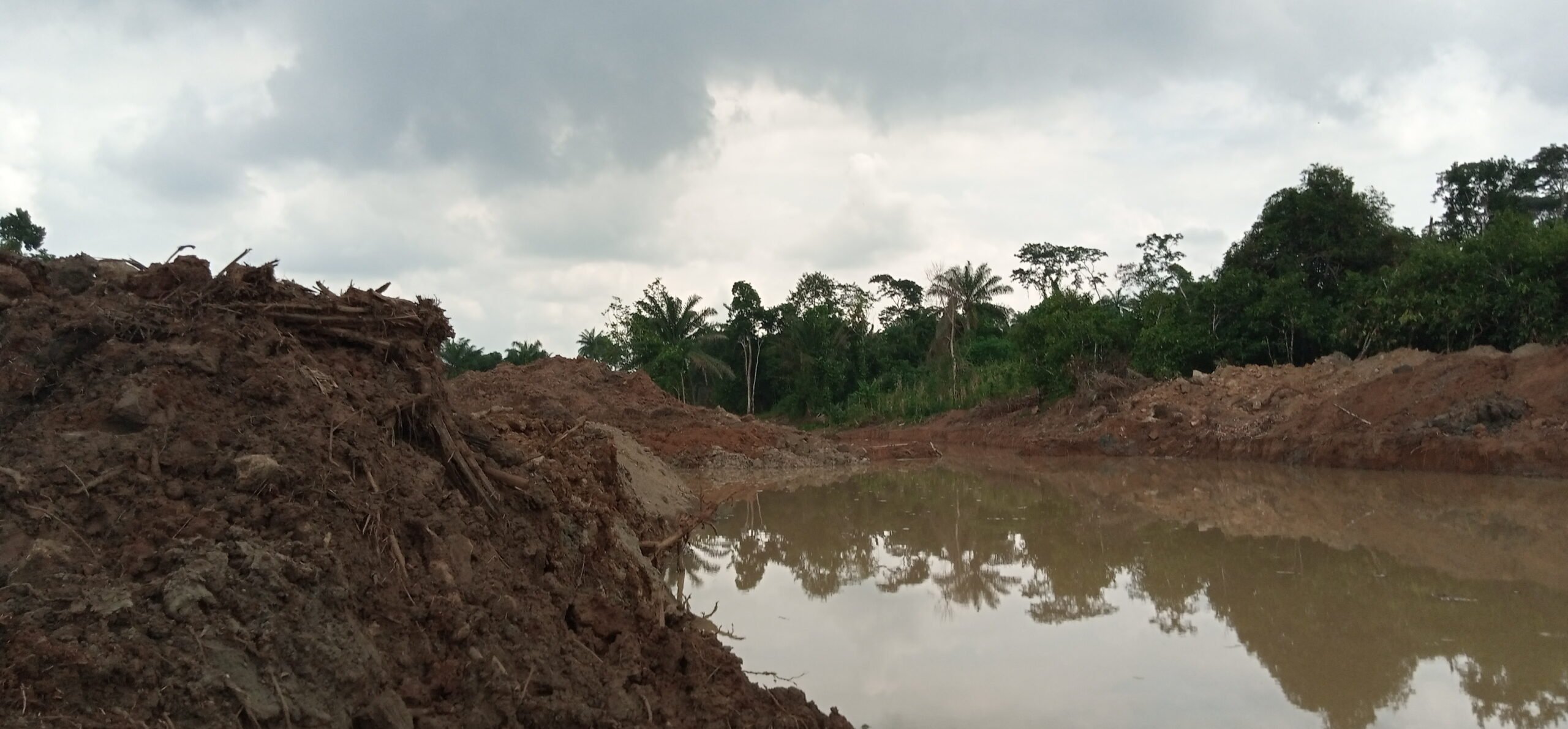
Meanwhile, data from the top products by imports and exports Q1 2020 report of the National Bureau of Statistics (NBS) shows that cocoa remains Nigeria’s second-largest agricultural export and second-highest foreign exchange earner with N109.6 billion revenue in one year. As of the second quarter of 2020, cocoa rose to become the most traded agricultural product in terms of export.
But things might change for the worse with continued destruction of cocoa farms and pollution of the soil across the state.
Advertisement
In 2010, an estimated 400 children died, and several others hospitalised in Zamfara owing to high levels of lead in their blood. It was described as the largest outbreak of lead poisoning in history — birthed by unsafe mining operations across the communities.
According to Jamiu Abdul-Azeez, professor of soil chemistry and environmental soil science at the Federal University of Agriculture, Abeokuta (FUNAAB), the impact of the gold mining process on farmlands is very devastating if prolonged.
Advertisement
“The farm is rendered unproductive because of the elevated amounts of heavy metals in the area. The plants, including arable like maize, cowpea and permanent cash crops like cocoa will be contaminated with heavy metals. Many of the heavy metals are associated with gold in its raw form and when it is to be mined, some chemicals like sodium cyanide are added,” Abdul-Azeez told TheCable.
“The crops will absorb the metals and hence make them unwholesome for consumption. This is part of the reasons why some of our cocoa beans will not be accepted in the international markets because of this contamination. This is similar to what happened in Zamfara when they had the issue of lead poisoning. The poison could have emanated from lead exposure during the process of gold mining.
“Also, the soil is destroyed, loses its fertility and it will no longer be productive. Several studies have concluded that artisanal gold mining activities cause severe soil degradation and loss of important soil nutrients. Some cocoa farmers have also reported early dropping of immature pods, wilting, yellowing of leaves and low yield on cocoa farms closer to mined-out areas. The impact is a major threat to qualitative food security and sustainable livelihoods.”
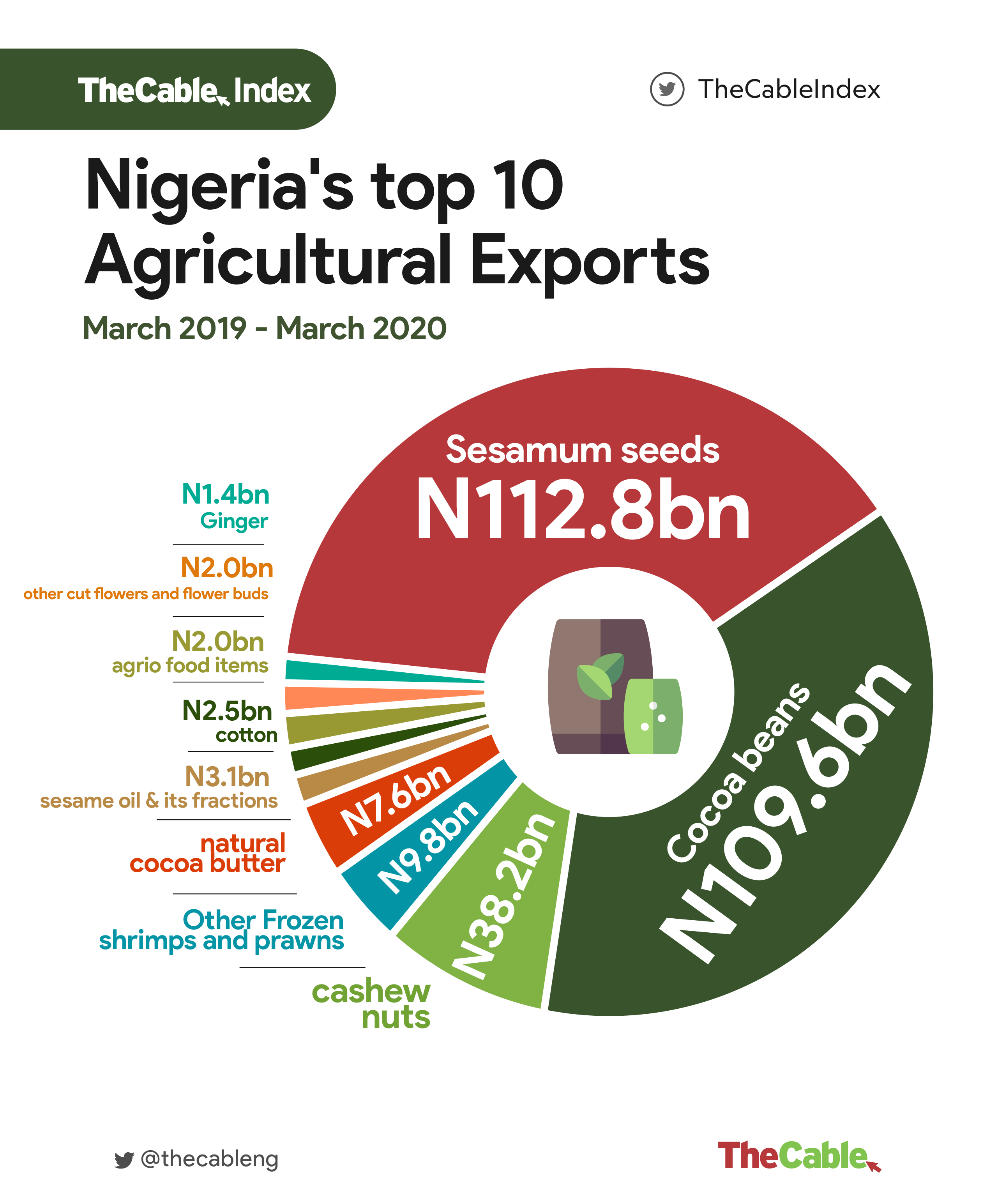
Nigeria is already trailing behind Cote d’Ivoire, Ghana and Indonesia as the fourth highest producer of cocoa in the world.
THE LUCRATIVE INDUSTRY RENDERING FARMERS HOPELESS AMIDST A PANDEMIC
In 2017, Olugbenga Okunlola, a professor of geology at the University of Ibadan (UI), said the gold deposit in Osun is worth about $5 billion.
Obalayan is not the only community in the state where farmlands have been turned to mining fields. Itagunmodi, Ibokun, Ilesha, Ifetedo, Ifewara, Ifetedo and Ibodi are also affected. The illegal mining is carried out by Chinese expatriates in conjunction with local accomplices.
On May 4, the state government announced the arrest of 27 persons for illegal mining, 17 of them were Chinese nationals. A local traditional ruler was among those arrested. Barely two weeks after, another 10 Chinese nationals were arrested during a raid on mining sites in some communities in Atakumosa west local government area of the state.
After several arrests in Zamfara, a north-west state with huge gold deposits, the federal government banned all mining activities in the state in 2019 and ordered the foreigners to leave the sites. With that, their activities shifted to communities in Osun.
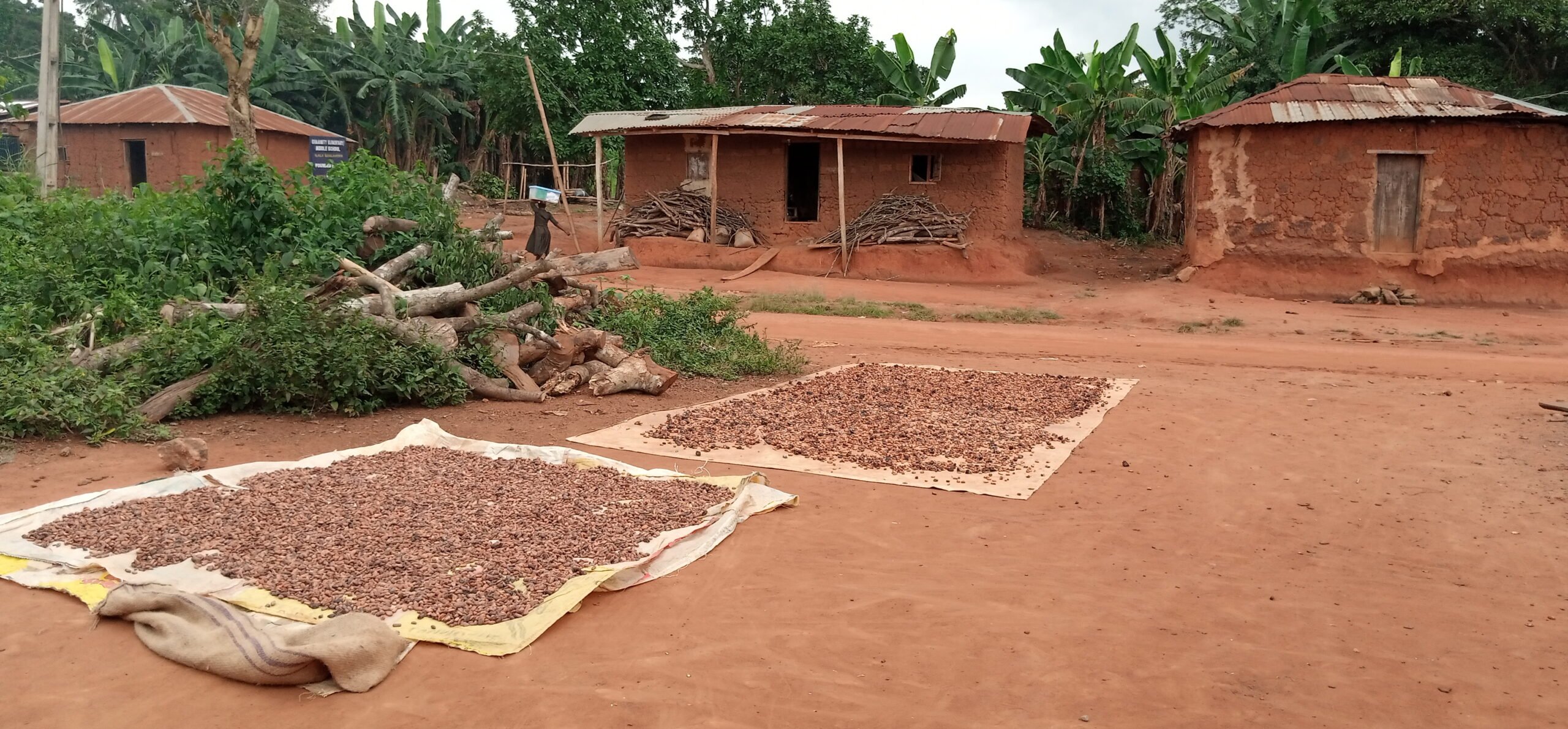
Olamilekan Adegbite, minister of mines and steel development, said the COVID-19 pandemic is responsible for the surge in illegal gold mining activities in the country, while he also accused some soldiers of aiding the illegal activity. The minister added that some influential Nigerians have been putting pressure on the federal government to free the Chinese nationals.
“Nigerians in high positions of authority [are behind them]. The Chinese are the main culprits in the illegal mining activities and we are going to meet with the Chinese embassy,” the minister said.
“The infinity of illegal gold miners is due to the increased price of the commodity in the international markets.”
In July, with rising COVID-19 infections and job losses, the price of gold reached $1,943 an ounce, beating the September 2011 high record of $1,920.85. With the global surge in the price of gold, the artisanal miners began to clear more farmlands in search of the precious metal.
According to industry analysts, Nigerian gold is smuggled to the middle-east and finds its way to dominate the Dubai gold industry in the United Arab Emirates (UAE). At the 2019 Dubai annual investment meeting, Abdullah Al Saleh, undersecretary for foreign trade, UAE ministry of economy, confirmed that Nigeria remains a major supplier of gold to the Dubai market, saying there is still room for expansion.
In 2018, operatives of the Economic and Financial Crimes Commission (EFCC) seized 73,032 grams of gold with a market value of N1.1 billion from a member of a syndicate smuggling it from Abuja airport to Dubai. A month after, the commission seized another gold worth N211 million at Lagos airport, at the point of departure to Dubai.
Adegbite said gold is the most smuggled mineral out of Nigeria. Corroborating the minister’s claim, President Muhammadu Buhari stated that Nigeria lost $3 billion to illegal smuggling of gold between 2012 and 2018.
According to Trading Economics, Nigeria is the sixth-largest country with gold deposits in Africa.
THE GOLD RUSH: IN PURSUIT OF A NEW REVENUE SOURCE

During the oil boom of the 1970s, the federal government shifted its attention away from agriculture, which used to be the predominant source of revenue, to oil exploration. The dwindling revenue from the crash in oil prices as a result of the pandemic has forced the government to look into other revenue sources.
In order to close the huge forex revenue loss from gold smuggling, the federal government too began the hunt for the precious metal to diversify its economy and shore up its income. The ownership and control of all minerals in the country come within the purview of the federal government.
In 2019, the federal government launched the Presidential Artisanal Gold Mining Development Initiative (PAGMDI), a comprehensive artisanal and small-scale gold mining development programme. During the unveiling of the country’s first batch of artisanally-mined gold bars in July, Buhari said the gold mining operation will generate over $500 million revenue annually and diversify the country’s revenue base.
The Central Bank of Nigeria (CBN) paid N268 million for 12.5-kilogramme refined gold bars, which will now serve as a reserve instrument.
The minister of mines and steels also announced that the federal government had licensed two refineries to refine gold to the London Bullion Market Association (LBMA). In Osun, the Segilola gold project, reported to be Nigeria’s first large-scale commercial gold mine, is also undergoing development by a Canadian developer with $78 million funding from Africa Finance Corporation (AFC). It is expected to commence production in 2021.
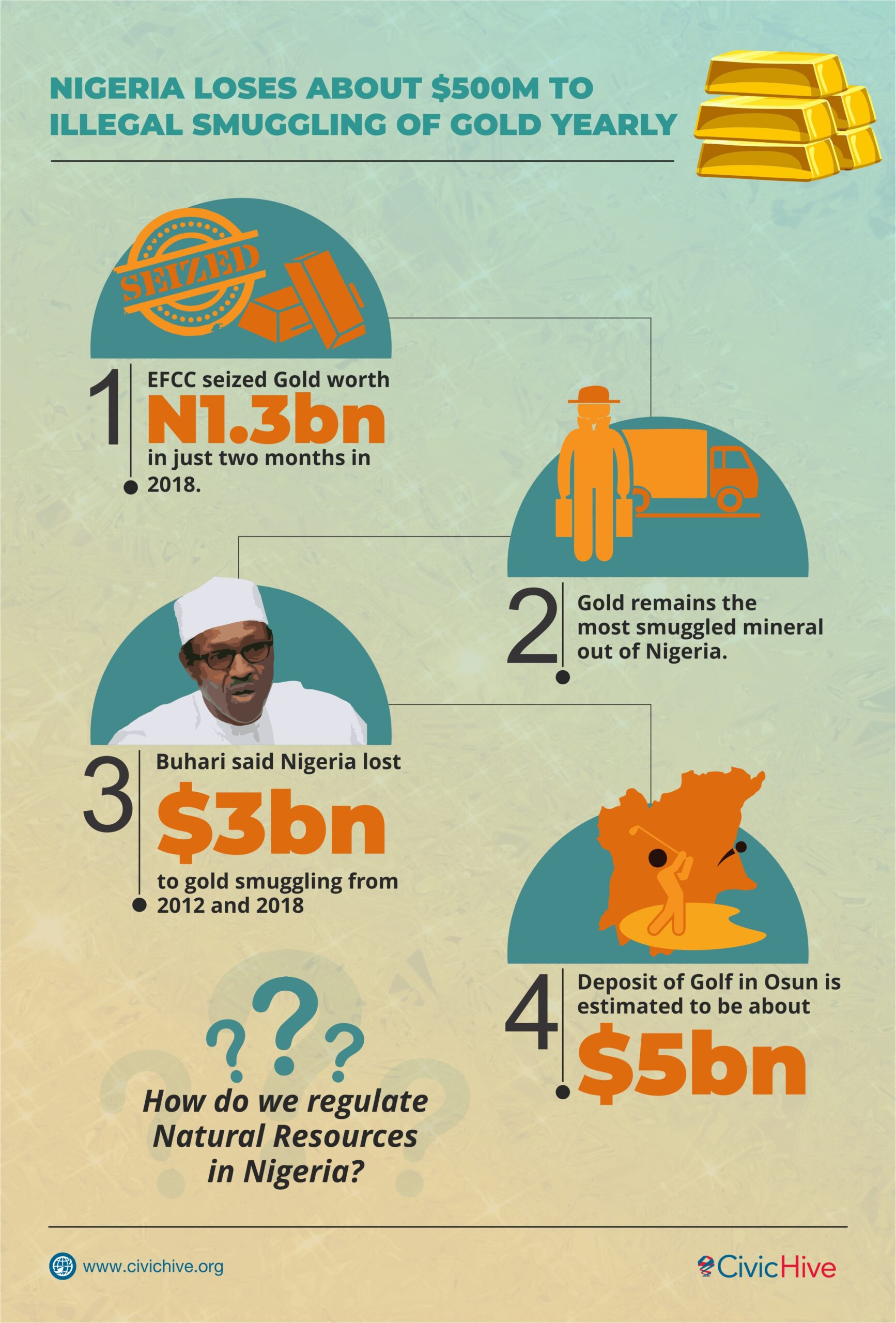
In an interview, Ismail Omipidan, chief press secretary to Gboyega Oyetola, governor of Osun, said the government is working on promulgating a law that will protect communities in the state from environmental hazards associated with illegal mining.
“Because we are in charge of our environment, we have asked the operators to do remediation. We have shut most of the major sites where they do illegal mining activities. We are conscious of the fact that we need to protect our environment and sanitise the mining sector,” Omipidan told TheCable.
“Also, we are working on a template that will protect the host communities because we don’t want the scenario in the Niger Delta, where oil eventually came to be seen as a curse, to happen to us. So, we are developing a template to ensure that you don’t just prospect for gold, there must be utmost regards for the environment and plans for remediation.”
As the country appears to be fully ready to diversify its economy from petrol-dollar to a golden era, the artisanal miners in the informal sector are also not left out of the race to acquire prosperity through the lucrative venture. The continued destruction of farms to give room for mining might worsen the plight of farmers like the Afolabis, who are yet to recover from the ongoing devastation of their farmland.
This report was published as part of the Budgit/Civic Hive Media Fellowship 2020. Published materials are not views of BudgIT/Civic Hive.
Add a comment

